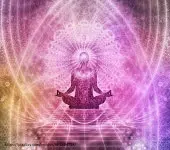Comments
Read more comments
What Is the Role of Religion in a Secular Nation?
Many youngsters have this confusion:
What is the role of religion in a secular nation?
Does it have a role at all?
In 1921, Mahatma Gandhi was asked a few similar questions by a journalist from Ludhiana. Among them, four questions are of particular importance. The questions were based on what would be the scenario after Swaraj happens:
India becomes independent.
India has its own government.
The first question was:
Gandhiji’s answer was – certainly not.
The second question was:
Any government means the government that will come into existence after India wins her freedom from the British. Mahatma Gandhi said that India will protect every religion that is professed in India and also every race that is present in India.
Understand that government does not mean the political party in power. Government means the machinery comprising of legislature, executive, and judiciary. This is not about parties or ideologies of parties.
The third question was:
If what shastra says is against the interest of the country, if the rule book of any religion says something against the interest of the nation, then how should it be dealt with?
Gandhiji is asking, why should something that is against the nation even be there in any religious scripture in the first place? He says the question itself is irrelevant. If it appears so, then it is either a wrong understanding or false propaganda.
No religion will tell you to practice treachery against one’s own motherland, the land that has made your birth happen, the land that has nourished you all this while with its resources. Which religion will ask you to disown your motherland? Such religions will not survive.
Every religion that survives is based on lofty ideals and principles. Barbarians have not survived or flourished. Genghis Khan of the 13th century killed millions during his time. It was a strategy—mass destruction did not happen during his conquests. He planned and executed them so that others would see the terror and submit to him. This was his strategy.
At one point in time, his empire covered nearly 18% of the earth’s surface. The only bigger empire ever was the British Empire, which covered nearly 26%. But where is Mongolia today? 28% of its population lives in poverty. In terms of GDP, it ranks 126th in the world.
They are struggling. Of course, the present generation has nothing to do with the past—they are very good people. I am only commenting on Genghis Khan as an invader, not Mongolians as a people or their culture. They have a rich culture. They are very nice people.
By religion, Genghis Khan was a Tengrist. Have you even heard about this religion? That’s what Gandhiji is pointing out. A religion that is not based on great ideals will not even survive.
Take the case of Sanatana Dharma:
‘Janani janmabhoomishcha swargadapi gariyasi.’
This is our ideal. Mother and motherland are greater than heaven. Even if someone offers you heaven as a reward for betraying them, you say no.
This is what Gandhiji is saying. A true religion can never come in conflict with the interests of the janmabhumi, the matrubhumi, and its government.
Then the journalist asked:
In essence, what it means is that no government should conduct itself in such a way that it is against the divine order. The divine principles of sharing, kindness, justice, equality, love, and brotherhood should dominate a nation’s decisions and policies.
The concept is very clear. There is only a single God for the whole world, the Supreme Power, which Sanatana Dharma calls Parameshwara, Parabrahma, or Paramatma. This God doesn’t belong to any particular religion.
Sanatana Dharma says, when all differences—segregation in terms of wealth, health, caste, and creed—disappear from the mind, then this Ishwara Tatwa is known, realized. Only then.
This Supreme Power is what different religions try to call by different names. But God and religion are not the same. A religion is a group of people who follow a particular theme of divinity or concept of divinity. It may be Parameshwara or Paramatma, or something simpler—a God who takes care of only the worldly needs of people and protects them.
But God and religion are not the same. You may be the greatest fan of an actor, but you are not him. He is different from you. This is the difference between God and religion.
In Sanatana Dharma itself, we have several matas—primarily six of them, which are prominent: Shaiva, Saura, Vaishnava, Shakta, Skanda, and Ganapatya. Each one worships a particular aspect of that supreme truth.
This, we can say, is the present-day structure of religions: one God who doesn’t belong to a particular religion, who is above all, and then so many religions that follow that Supreme God in his entirety or in part.
It is simple. Where is the position of the nation in this? Very clearly established by our great freedom fighters.
You don’t have to go far. Take our national anthem:
‘Jana Gana Mana.’
For us, our nation, our motherland itself is the Parameshwara, whom we call Jana Gana Mana Adhinayaka. He is the Antaryami, the power which controls everyone from within—Jana Gana Mana. He is our Bhagya Vidhata. He writes our destiny. He decides where, as a nation, we are going.
‘Tava shubha ashish maange’—we are seeking his blessings.
‘Gahe tava jaya gatha’—we are singing his glory.
And he is also Jana Gana Mangala Dayaka—the provider of mangala to everyone. The nation is only next to that great supreme truth, called Parameshwara or Paramatma, who doesn’t belong to any religion.
Typically, this is the concept of Sanatana Dharma. The religions as we have them today—not Gods, but religions—people who call themselves as belonging to any particular religion, they should all work only in the interest of the nation.
Because for us Indians, the nation itself is Parameshwara, Paramatma in visible form. What Gandhiji means when he says that loyalty to the nation should be subordinate to loyalty to God is that the nation should always function according to the divine order and never deviate from it.
And when all religions function in the interest of the nation, they are functioning in the interest of Parameshwara, Paramatma—that one and only Supreme Truth.
Knowledge Bank
What is the meaning of Ashwamedha Yaga?
Ashwamedha Yaga (or Ashwamedha sacrifice) is a Vedic ritual performed by ancient Indian kings to demonstrate their power and authority over neighboring kingdoms. The word 'Ashwamedha' is derived from two Sanskrit words - 'ashwa' meaning horse and 'medha' meaning sacrifice. In this ritual, a specially chosen horse is released to wander freely through neighboring kingdoms, accompanied by a large army. If the horse is captured by another kingdom, it is seen as a challenge to the king's power, and the capturing king must either submit to the king who initiated the Ashwamedha Yaga or face war. If the horse returns safely after a year of wandering, the king who initiated the ritual is declared victorious and is believed to have gained control over all the kingdoms through which the horse passed.
Why is Bhishma great?
Bhishma is the perfect man of Mahabharata. By birth, he is a king, but on a trivial demand by a woman who his father was going to marry gave up his kingdom and married life. Still, he continued to protect the kingdom as its pillar of strength. He was afraid of none. His sense of duty is incomparable which he performed with detachment. Even when Duryodhana ignored his advice, he fought as his commander and wreaked havoc upon the Pandava army. In the end, he chose to die and adopted Yoga bhava.
Recommended for you
The Greedy Monk

The prince said: but father, what should you call a man who collects fruits and vegetables from the orchard and sells them or money.....
Click here to know more..Shiva Meditation For Knowledge

Shiva Meditation For Knowledge....
Click here to know more..Ganapathi Thalam

विकटोत्कटसुन्दरदन्तिमुखं भुजगेन्द्रसुसर्पगदाभरणम् । ....
Click here to know more..